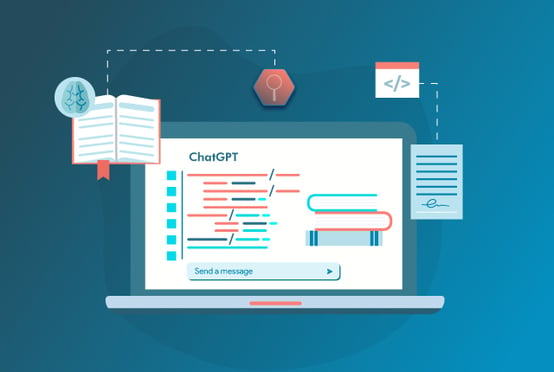
ChatGPT [Chat Generative Pre-trained Transformer] is the AI chatbot that uses NPL to create a humanlike conversation. ChatGPT is also trained to follow instructions in a prompt and provide a detailed response.
Let's focus on how this is helping in e-learning domain. Below are few areas where ChatGPT can help us in the e-learning domain:
- Personalized Learning Experience: ChatGPT can provide personalized learning experiences by interacting with students and tailoring content based on their specific needs and preferences. It can answer questions, explain concepts, and provide additional resources or examples to enhance understanding.
- On-Demand Tutoring: Students can engage in real-time conversations with ChatGPT to receive instant tutoring support. They can ask questions about a topic, seek clarification on difficult concepts, or get assistance with problem-solving. This enables students to learn at their own pace and overcome obstacles more effectively.
- Content Generation: ChatGPT can generate educational content such as quizzes, practice exercises, and study materials. It can create interactive scenarios or simulations to enhance the learning experience. This helps educators save time and effort in content creation, allowing them to focus on other aspects of teaching.
- Language Learning Support: ChatGPT can assist in language learning by engaging in conversations, providing vocabulary and grammar explanations, and offering language practice. Students can improve their speaking and writing skills by interacting with ChatGPT in the target language.
- Feedback and Assessment: ChatGPT can provide automated feedback on assignments, essays, or coding exercises. It can analyze student responses, identify errors, and offer suggestions for improvement. This enables students to receive immediate feedback, track their progress, and make necessary adjustments.
- Accessibility: ChatGPT can improve accessibility by accommodating different learning styles and preferences. It can adapt its responses to cater to visual, auditory, or kinesthetic learners. Additionally, it can assist students with disabilities by providing text-based information or alternative formats.
- 24/7 Availability: ChatGPT is available round the clock, allowing students to access learning support whenever they need it. This flexibility empowers students to study at their convenience and promotes continuous learning outside traditional classroom hours.
Conclusion: It's important to note that while ChatGPT can be a valuable tool for 'eLearning app testing services', it should not replace human teachers or interactions. Instead, it should be seen as a supplement to enhance the learning experience and provide additional support. Hope, the above information will help.

Post a Comment